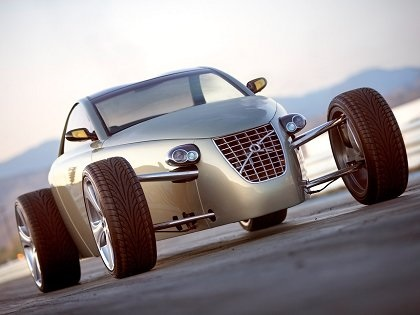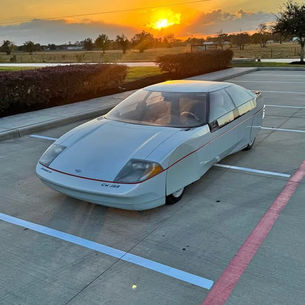2003 Opel Insignia Concept by Bertone
- Story Cars
.png/v1/fill/w_320,h_320/file.jpg)
- Nov 3, 2024
- 2 min read

The 2003 Opel Insignia Concept, developed by Bertone, debuted at the IAA and showcased a fresh direction in Opel's design philosophy, significantly influencing subsequent production models. This concept features a harmonious blend of proportions with progressive, elegant, and dynamic lines, demonstrating how Opel's new design language can be effectively applied to larger vehicles. The Insignia ultimately achieved acclaim, being named Car of the Year in 2009.

In terms of technology, the Insignia Concept incorporates various innovations, including extensive LED lighting and unique pantograph-action doors and tailgate. These rear doors slide backward when a hidden button in the door handle is pressed, showcasing the innovative engineering behind the design. Powering the concept is a 344-horsepower aluminum V8 Corvette engine, capable of reaching a maximum speed of 250 km/h (electronically limited) and accelerating from 0 to 100 km/h in under six seconds.

The exterior design of the Insignia is marked by an impressive three-dimensional radiator grille, symbolizing pride in the Opel brand and referencing the company’s tradition of producing larger vehicles. Its departure from conventional notchback shapes is evident in the sleek coupé-style bodylines, a long engine hood, sweeping A-pillars, and inward-tapering front and rear ends, all of which contribute to the car's dynamic appearance.
Inside, the Insignia Concept continues Opel's tradition of innovative interiors, featuring flexible configurations reminiscent of the Zafira’s Flex7 seating system and the Meriva and Signum FlexSpace concepts. Notably, the central tunnel section separating the two individual rear seats can be moved beneath the trunk floor, allowing a folded seat to be electrically raised, transforming the vehicle into a five-seater.
This concept car represents a significant shift in Opel’s image, highlighting a commitment to modern design and innovative technologies while retaining elements of luxury and practicality, although it was never intended for production.




























Comments